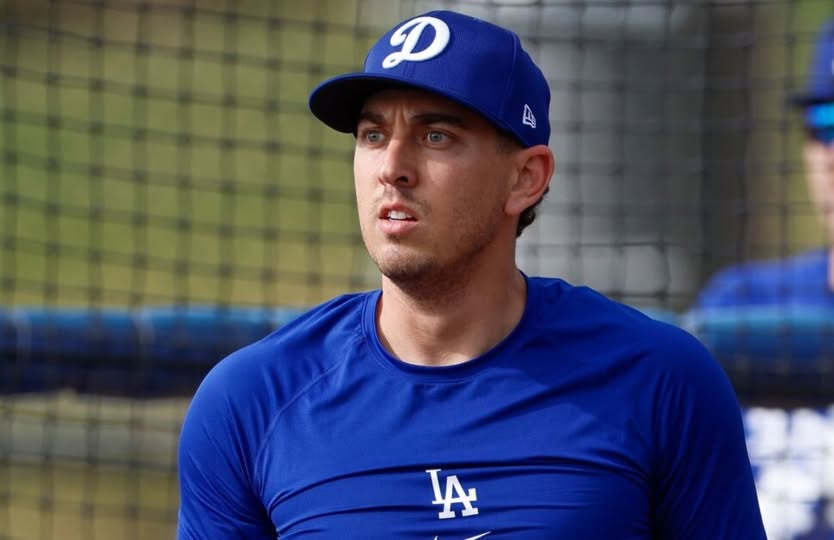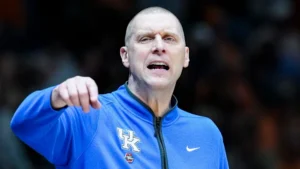
The Los Angeles Dodgers Designate Austin Barnes for Assignment, Call Up Dalton Rushing: An In-Depth Analysis
The Los Angeles Dodgers are one of the most successful and storied franchises in Major League Baseball (MLB). With a history of championships, legendary players, and a commitment to maintaining a competitive roster year after year, the Dodgers are constantly making strategic decisions to ensure the franchise stays atop the MLB hierarchy. One such decision, which has created significant buzz across the league, was the designation of catcher Austin Barnes for assignment in favor of calling up young prospect Dalton Rushing.
This unexpected move has raised eyebrows within the baseball community for a variety of reasons, as it comes at a time when the Dodgers are locked into a tight race for the National League (NL) West division crown and Barnes has been an important part of the team for several seasons. The decision to part ways with Barnes, a longtime backup to star catcher Will Smith, signals a potential shift in philosophy and a recognition of the club’s evolving roster needs.
Let’s break down this decision, explore the factors that led to the move, and analyze what it means for both Barnes and the Dodgers as a whole.
Austin Barnes has been a consistent figure on the Dodgers’ roster for the past several years. Acquired in a trade with the Miami Marlins in 2014, Barnes has carved out a niche for himself as a valuable backup catcher behind Will Smith. While not known for his offensive prowess, Barnes has been regarded as one of the best defensive catchers in the league, with an exceptional ability to frame pitches, call games, and provide valuable experience to the pitching staff.
Over his career with the Dodgers, Barnes has built a reputation for being a dependable player off the bench, often filling in during off-days for Will Smith or providing a defensive upgrade in late innings. While Barnes’ offensive numbers have never been eye-popping, his defensive contributions—particularly his pitch framing, ability to control the running game, and leadership behind the plate—have made him an invaluable part of the team’s success.
In the 2023 season, Barnes saw limited playing time as Smith continued to take on the bulk of the catching duties. Barnes batted .215 with a .611 OPS in 93 at-bats. Despite his struggles at the plate, his defensive value was unquestioned, and the Dodgers remained steadfast in their commitment to Barnes as a backup catcher. However, as the 2024 season unfolded, it became clear that the Dodgers were looking for something different, both in terms of offensive production and roster flexibility.
Enter Dalton Rushing, the Dodgers’ highly touted catching prospect who has been turning heads in the minor leagues. Selected by the Dodgers in the second round of the 2022 MLB Draft out of the University of Louisville, Rushing quickly established himself as one of the top catching prospects in the organization. Known for his solid bat, impressive power, and ability to call games, Rushing represents the next generation of talent for the Dodgers behind the plate.
Rushing’s ascent through the minor leagues has been rapid. In 2023, he split time between High-A and Double-A, showcasing his impressive power potential with a combined 20 home runs and a .255 batting average. His offensive potential, paired with his ability to handle a pitching staff, made him a strong candidate to eventually challenge for a spot on the big league roster.
The Dodgers have long been known for their ability to develop top-tier talent, and Rushing is a prime example of their commitment to finding and nurturing young players. While he still has room to improve in certain aspects of his game, such as plate discipline and defense, Rushing’s raw tools are undeniable. His power bat, coupled with his ability to handle pitchers, gives the Dodgers a potential long-term solution at the catcher position, which may have influenced their decision to part ways with Barnes
The decision to designate Austin Barnes for assignment came as a surprise to many, particularly because of Barnes’ long tenure with the team and his solid reputation as a defensive catcher. However, the move reflects the Dodgers’ commitment to evolving and adapting to the changing landscape of MLB.
One of the most significant factors in the Dodgers’ decision to move on from Barnes is the need for increased offensive production from the catcher position. While Barnes’ defense has been exceptional, his bat has been a consistent weakness. The Dodgers have been in search of ways to improve their overall offense, and this may have factored into the decision to promote Dalton Rushing.
Rushing brings a power-oriented bat to the lineup, something that has been a hallmark of the Dodgers’ offensive strategy in recent years. While Rushing is not yet a finished product, his ability to hit for power makes him an enticing option for the Dodgers. Additionally, Rushing is expected to have the ability to handle the pitchers at the major league level, which would allow him to provide a balanced offensive and defensive presence.
By calling up Rushing and designating Barnes for assignment, the Dodgers open up a valuable spot on their roster that can be used to address other needs. This could be important, particularly as the team looks to make a playoff push and reinforce its roster heading into the second half of the season. Rushing’s call-up represents a shift toward prioritizing the development of younger players and building toward the future, while still maintaining a competitive roster for the present.
The Dodgers are known for their ability to juggle both long-term player development and short-term success, and promoting Rushing aligns with this strategy. The team appears to be giving Rushing an opportunity to prove himself at the major league level while simultaneously creating an avenue for further roster flexibility as the season progresses.
With Will Smith firmly entrenched as the Dodgers’ starting catcher, the need for a veteran backup like Austin Barnes has lessened. Smith has developed into one of the top catchers in MLB, known for his bat, defensive skills, and ability to handle the Dodgers’ pitching staff. The team’s reliance on Smith has only increased in recent years, as his offensive production has become more consistent and his defensive contributions continue to improve.
As Smith assumes the majority of the catching duties, the Dodgers are better positioned to invest in a young, dynamic backup catcher who can potentially provide more offensive value than Barnes. Rushing, with his potential to develop into an everyday player in the future, offers more upside than Barnes, whose role had largely been relegated to backup and late-inning defensive replacement.
For Austin Barnes, being designated for assignment marks the end of a successful era with the Dodgers, though not necessarily the end of his career in the majors. While the Dodgers’ decision may seem harsh, it’s a testament to how the organization values roster flexibility and long-term success.
The decision leaves Barnes in a precarious position. He will either be claimed by another team or have his contract outrighted to the minors if he clears waivers. Given his reputation as a solid defensive catcher, there will likely be interest from other teams in need of a backup catcher with a strong defensive profile. Barnes may find a new opportunity elsewhere, potentially joining a team looking for a reliable backup or mentor for a young pitching staff.
However, Barnes’ time with the Dodgers will always be remembered fondly. He was part of the 2020 World Series championship team, a key contributor in their postseason run, and a beloved figure within the clubhouse. His leadership and commitment to the Dodgers will not be easily forgotten.
The decision to call up Dalton Rushing and part ways with Austin Barnes signals a clear shift in the Dodgers’ philosophy, prioritizing the development of younger players and embracing the potential of their farm system. While Barnes was a key part of the team’s success over the years, the move reflects the reality that MLB teams must continually adapt to stay competitive.
For the Dodgers, this move could have significant long-term implications. With Rushing now in the fold, the team has a potential future star at the catcher position, which could allow them to explore other avenues to bolster the roster. It also opens up a pathway for other young players to make an impact at the major league level.
As the Dodgers look to continue their dominance in the NL West and pursue another World Series championship, this move will likely be seen as one of many calculated decisions made with both the present and future in mind.
The Los Angeles Dodgers’ decision to designate Austin Barnes for assignment and call up Dalton Rushing is a bold move that reflects the team’s commitment to adapting to the changing dynamics of MLB. While Barnes has been a valuable contributor over the years, the Dodgers are choosing to prioritize the development of younger talent and seek greater offensive production from their catcher position. This move will have significant implications for both Barnes and the Dodgers as they continue their pursuit of excellence in both the short-term and long-term future.
Whether or not Dalton Rushing becomes the next great catcher for the Dodgers remains to be seen, but the team’s willingness to make such a move speaks to their commitment to always improving and staying at the forefront of the game.





